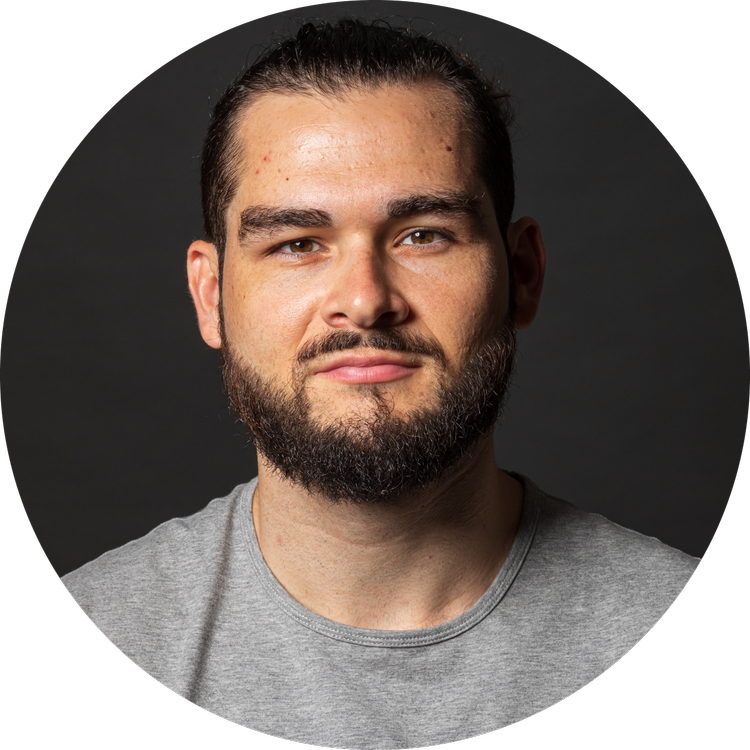Magic is coursing through me as I wander about the storied and mystical red rock buildings of the University of Pennsylvania. Shelby is giving me a mini-campus tour. I feel tiny and out of place amongst this sprawling history of American prestige. The university's wicked Sith-like architecture makes me feel very happy to have moved on from my rather uneventful week of classes and conversations in Richmond.
“What’s your schedule looking like for today?” Shelby asks me as if I’m a real student here.
“Oh, man,” I say excitedly, “Well, I’ve got Introduction to American Politics in 20 minutes, and then Advanced Cognitive Neuroscience. Then I’m going to stop by the Psychology building to find Angela Duckworth. Then Biochemistry, … and then … Ugh, then I have Neurobiology of Learning and Memory at 7:00 p.m.”
She looks at me as if I’ve just said something crazy, then we laugh out loud. I only met Shelby a few months ago, coincidentally just hours after that electrifying meeting with Andrew Yang. Shelby is the product of a working-class family with costs so tight she nearly had to skip out on Penn. She is 20-years old and somehow already sporting an interdisciplinary career taking her from think tanks and startups to Hillary’s Pennsylvania frontline and now the President of the Penn Democrats. But when you meet Shelby, you’ll forget all about the pedigree as you’re left wondering how at such an age, she manages to have the gratitude and generosity of a late-stage yogi. So, while I hadn’t planned on skipping straight from Richmond to Philadelphia, when Shelby offered to be my Philly Sherpa, I couldn’t get here fast enough. Plus, Penn (as they call it, and don’t you dare say UPenn, outsider!) is one of the United States' great brain meccas.
Shelby and I part ways, and I make my way over to American Politics. I’m a little nervous as Shelby had warned me of security doors, so I need to shuffle in with students everywhere I go. American Politics turns out to be a hundred-person lecture class, so I slide in easily. The class is non-revolutionary, and I learn nothing new. After class, I ask the professor whether he thinks politics is a good vehicle for change. He looks at me much how a few VCU professors did; how did you even get into this university? Jokes on him, I never even applied!
When I arrive at the building for Advanced Cognitive Science, there’s no one around, so I can’t get into the building. I wander around looking into windows and shaking door handles until I surmise I’ll get arrested if I keep it up. Finally, someone comes out, and I go in. When I get to the classroom, I freeze in place. The class is 10 people. I pace around anxiously in the hallway feeling like I’m going to throw up, but, I decide, I can’t turn back now. I head into class and take a seat at the conference table.
The moment class begins, as you’d expect, the teacher asks me politely, annnnd who in the fuck are you?
“Oh,” I say, realizing I should have prepared an alibi, “I’m just really into neuroscience, so figured I’d drop in to get a feel for it.”
“This is a Ph.D. course,” she says, frowning. My first thought is, good gravy, Andrew, you’ve really got yourself in a pickle now. The class is staring at me as if I’m some big asshole. I’m just staring blankly at the professor as my mind turns into that monkey with tambourines from the Simpsons. All the while, the professor is surely deciphering my whole life just from the panic on my face. The room stirs in silence like a midwestern standoff.
“… Wait, are you even a student at Penn?” she finally asks.
“Uh … no,” I say shamefully.
“Oh my god,” she says, throwing her hands in the air and shaking her head. I stare off into the abyss like a stranded sea captain awaiting his fate.
“Okay, goodness gracious, I’ve never seen anything like this. You can stay, but you can’t come back.”
Tail between my legs, I agree. Through the class, I strive my absolute hardest to learn the content just to not seem like an asshole. To my credit, it worked, and I still know how a neural sodium-potassium pump works.
After the class and the historic clash of titans, the professor and I share a good laugh. This kid ain’t such a blowhard after all! Most importantly, she confirms for me a few things.
Yes, we totally need brains!
Yes, UBI would be transformative for our wellness!
After class, I wander the hallways of the neuroscience building and speak to random adults who look like they know what the brain is up to. Everyone is screaming my praise for daring to take on the mission of improving the donation of brains. Brainman! Bring us brains! I’m so excited and full of myself that I over-commit to one professor that I’m totally applying for a neuroscience Ph.D.
As if I’d not been enough of a menace to the people of Penn at this point, I head over to the psychology building (which is uncharacteristically grungy and gross for the astute Penn) and repeat my behavior. Except this time, rather than asking about brain logistics, I’m asking which is a better career choice for someone trying to improve society’s mind. Brains or basic income?
It’s a pretty split audience. Most of the professors don’t even know what universal basic income is, so I have to explain it. I end up answering questions about basic income and automation for hours. Then it hits me. Am I a traveling disciple of basic income already? Have I unconsciously already begun living my decision? No way, my brain affirms, indecision is your greatest strength!
I never find Angela Duckworth.
